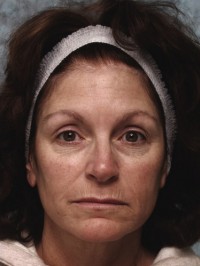Chemical Peel FAQ Beverly Hills
FREQUENTLY ASKED QUESTIONS ABOUT CHEMICAL PEEL
For your convenience, Dr. Steinsapir has compiled a list of the most commonly asked questions about cosmetic chemical peel. If your question is not answered below, please do not hesitate to contact our private practice facility, located in Beverly Hills, California. We look forward to speaking with you, and are always available to answer any questions or concerns you may have.
I am getting a monthly Jessner’s peel by my aesthetician. How does that differ from the peels that Dr. Steinsapir performs?
The Jessner’s peel is a very mild peel, whereas even the low concentration trichloroacetic acid peels (i.e. 10 and 15% concentration) that Dr. Steinsapir performs reach deeper into the skin. It is likely that a 15% TCA peel performed two or three times a year would produce the same results, or even more dramatic results than you currently achieve with a monthly Jessner’s peel.
My cosmetic surgeon tells me that chemical peels are obsolete and has recommended that I get a series of Fraxel® laser treatments instead. What does Dr. Steinsapir think of Fraxel®?
Fraxel® is fractional CO2 laser resurfacing. In general, these laser treatments are relatively mild, and are designed to be well tolerated with no required down time. Because they are mild, the degree of improvement is limited. Fraxel® treatments will refresh the complexion but cannot facilitate significant facial tightening. The equivalent treatment with a chemical peel might be a 20% TCA peel of the face. The good news is that you are unlikely to be harmed by a laser treatment, but you also may not feel that you achieved the results you were hoping for and that the cost outweighed the benefits. Chemical peels are by no means obsolete; however, very few surgeons have the specialized training necessary to glean optimal results from chemical peels that Dr. Steinsapir does.
My cosmetic surgeon has recommended that I have CO2 laser resurfacing. I am a little nervous about the treatment especially after reading in his brochure that it is normal to have a result that leaves the face lighter than the neck. Is a chemical peel a viable alternative to CO2 laser resurfacing?
Dr. Steinsapir believes that CO2 laser resurfacing is a failed technology. It offered a lot of promise when it was first introduced and it is possible to achieve good results with a CO2 laser, but there are a significant number of limitations. The thermal injury created by CO2 laser damages the melanocytes of the skin and results in hypopigmentation (skin lightening) and textural abnormalities. A customized full-face chemical peel is an excellent alternative to CO2 laser resurfacing, as it can safely be used on all complexion types without creating undesirable pigmentation changes.
I am thinking of having a laser peel—are these effective for skin rejuvenation?
A laser peel is generally performed with an erbium laser, which is used in a single pass. This ablates off only a few layers of skin and is usually a comfortable treatment when performed with a topical numbing cream. However, the laser peel treatment is very superficial and produces only mild results that are equivalent to what might be achieved with a microdermabrasion treatment. Unless the service is very inexpensive, it will not be worth the price paid.
Several years ago, I had laser resurfacing of my lower eyelids. I developed hyperpigmentation of the skin. The doctor who treated me said that this was normal and would resolve in time but never did. Is there anything that can be done to correct this issue?
There are a number of treatments to effectively correct post-laser hyperpigmentation. Dr. Steinsapir has successfully treated this condition with both Fotofacial® and chemical peels. During your initial consultation with Dr. Steinsapir, he can assess the condition of your skin to determine what corrective options are best suited to address your unique cosmetic concerns and skin tone.
I have heard that chemical peels are very uncomfortable. How will I know if I can tolerate a chemical peel?
The key to a comfortable chemical peel is in the pre-treatment preparation. Dr. Steinsapir has developed an entire system to facilitate a safe, comfortable, full-face chemical peel that is not only effective, but also surprisingly comfortable. Dr. Steinsapir’s chemical peels are well-tolerated by most patients, who are often shocked to find that they only need extra-strength Tylenol® to manage their discomfort after the chemical peel session.


